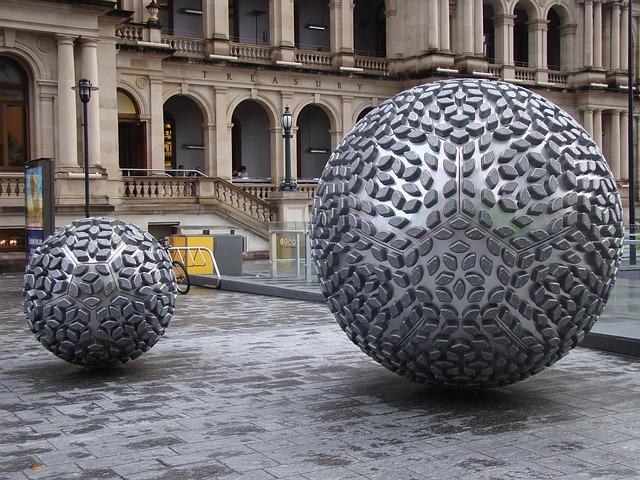Brisbane City Council is stepping up efforts to promote walking and running across the city, unveiling new initiatives aimed at enhancing public health and urban mobility. With a growing network of pedestrian-friendly pathways and running tracks, residents and visitors alike are encouraged to embrace active lifestyles amidst Brisbane’s vibrant urban landscape. This move aligns with broader goals to reduce traffic congestion, lower carbon emissions, and foster a more connected community. In this article, we explore the latest developments from Brisbane City Council that are making the city a more accessible and enjoyable place for walkers and runners.
Walking Trails and Running Routes in Brisbane City Council Areas
Brisbane City Council offers an extensive network of walking and running routes that cater to all fitness levels and preferences. From the scenic riverside pathways along the Brisbane River to the lush greenery of city parks, residents and visitors can explore diverse landscapes while staying active. Notable routes such as the Kangaroo Point Cliffs Track provide stunning panoramic views of the skyline, while quieter trails like the New Farm Park Circuit offer a peaceful retreat within the urban environment. These trails are well-maintained and often feature shaded areas, water stations, and rest spots, encouraging safe and enjoyable outdoor exercise throughout the year.
For runners seeking a bit more challenge, the D’Aguilar National Park within the broader council areas presents rugged terrain and elevation changes, perfect for those training for endurance events. Meanwhile, casual walkers can benefit from accessible routes such as the Roma Street Parkland Walk, which combines both natural beauty and public art installations. The table below highlights a selection of popular paths, including distance, difficulty level, and key features to help you plan your next adventure.
| Route | Distance | Difficulty | Key Features |
|---|---|---|---|
| Kangaroo Point Cliffs Track | 4 km | Moderate | City views, river lookout, shaded sections |
| New Farm Park Circuit | 3 km | Easy | Parklands, picnic areas, gentle paths |
| D’Aguilar National Park Trail | 8 km | Hard | Hilly terrain, forest, wildlife spotting |
| Roma Street Parkland Walk | 2.5 km | Easy | Botanic gardens, art installations, accessible |
Safety Tips and Best Practices for Pedestrians and Runners in Brisbane
Brisbane’s vibrant outdoor lifestyle beckons both pedestrians and runners to explore its scenic pathways and bustling streets. To ensure a safe experience, always stay alert and visible. Wearing bright or reflective clothing, especially during dawn, dusk, or night, significantly increases your visibility to drivers and cyclists. Utilize designated crossings like zebra and signalised pedestrian crossings whenever possible, and make eye contact with approaching vehicles before crossing busy roads. Avoid distractions such as mobile phones or headphones at high volumes to remain aware of your surroundings, particularly in high-traffic zones like Queen Street Mall or along the Brisbane Riverwalk.
When planning your route, consider the safest pathways and avoid poorly lit or isolated areas. Brisbane provides an extensive network of shared paths and footpaths designed to separate pedestrians and cyclists, reducing collision risks. Use hand signals or verbal cues when running in a group to communicate movements clearly. The table below highlights some key safety tips recommended by Brisbane City Council for pedestrians and runners:
| Safety Tip | Helpful Practice |
|---|---|
| Visibility | Wear reflective gear, use lights |
| Crossings | Use designated pedestrian crossings |
| Distractions | Avoid headphones at loud volume |
| Route Planning | Choose well-lit and populated paths |
| Group Running | Communicate with hand signals or calls |
Council Initiatives to Enhance Walkability and Promote Active Lifestyles
Brisbane City Council has launched several innovative programs aimed at making the city more walkable and encouraging residents to embrace active lifestyles. Central to these efforts are comprehensive upgrades to pedestrian infrastructure, including the installation of wider footpaths, improved lighting, and safer street crossings. These enhancements not only improve accessibility but also create inviting public spaces that foster community interaction. Additionally, the council has partnered with local health organisations to deliver community walking groups and seasonal challenges designed to motivate people of all ages to get moving.
Supported by a strategic investment of over $15 million this year, the council’s initiatives include:
- Green Walkways: Expanding shaded, park-connected pathways to promote longer and more enjoyable walks.
- Smart Signage: Installing interactive wayfinding systems to inform and engage pedestrians.
- Active Transport Incentives: Programs rewarding citizens who regularly choose walking or running for transport.
The effectiveness of these projects will be tracked through a quarterly progress report, designed to ensure transparency and continuous community feedback.
| Initiative | Budget Allocation | Expected Impact |
|---|---|---|
| Footpath Upgrades | $6M | Increased pedestrian safety |
| Community Challenges | $2M | Higher participation in walking events |
| Smart Signage | $1.5M | Enhanced navigation and engagement |
| Green Walkways Expansion | $5.5M | More accessible and scenic routes |
The Way Forward
As Brisbane continues to prioritize active lifestyles and sustainable transport, walking and running remain integral to the city’s vision for a healthier, more connected community. With ongoing investments from Brisbane City Council in infrastructure and public programs, residents and visitors alike can look forward to safer, more accessible pathways that encourage movement and engagement with the city’s vibrant neighborhoods. Whether for fitness, commuting, or leisure, Brisbane’s walking and running networks offer an inviting way to experience the city’s unique blend of urban life and natural beauty.





